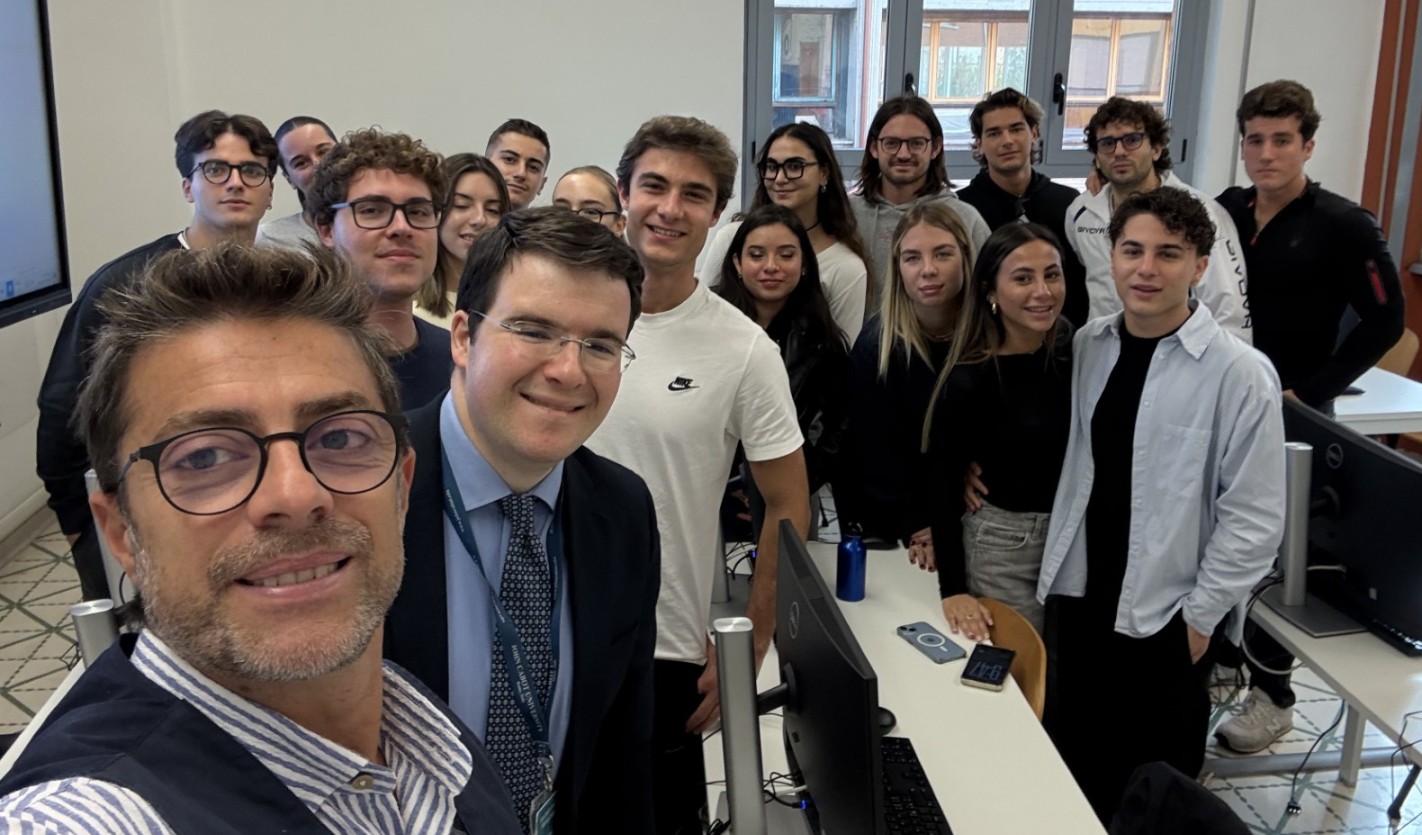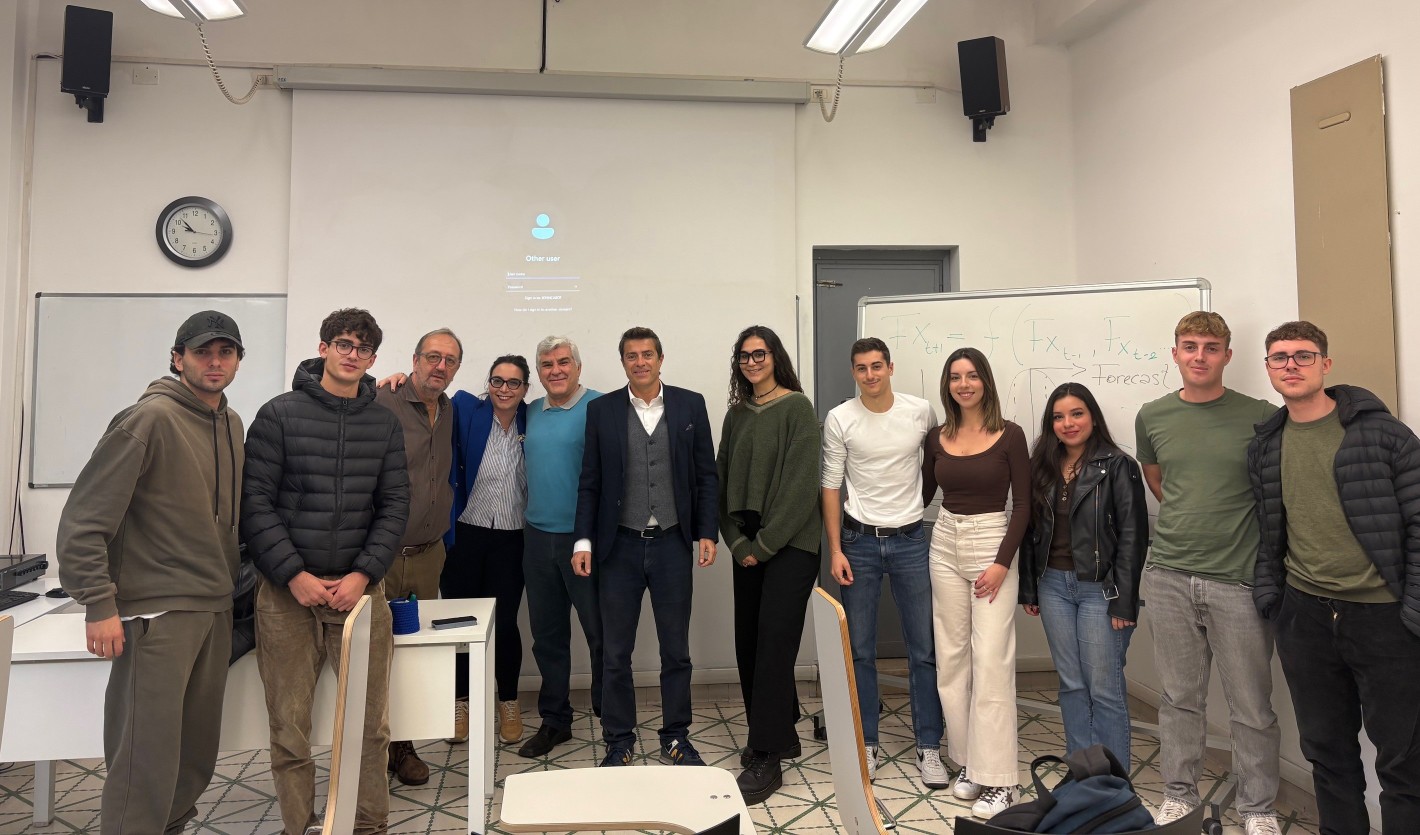On October 30, 2025, students in Professor Sergio Scicchitano’s Econometrics class attended a seminar with Luca Bellardini, technical advisor on economic and financial issues at the Italian Parliament. His lecture, titled “Geopolitical Shocks and Investment Decisions: Insights from a Young Economist Working with Policymakers,” offered a data-driven look at how international relations shape financial markets and investor behavior.
Equity markets and geopolitical turmoil
Bellardini presented his 2025 research paper (co-written with Oliviero Roggi and Kateryna Tkach) “International Relations as a Driver of Equity Investments: Evidence from Shareholders’ Reaction to Geopolitical Shocks,” which investigates how global crises and political tensions affect equity markets. Central to his discussion was the notion of a “perma-crisis”, a state of continuous global instability fueled by events like the COVID-19 pandemic, the Russian invasion of Ukraine, deglobalization trends, and the regionalization of supply chains.
Using data from LSEG Data & Analytics (formerly known as Refinitiv), a company part of the London Stock Exchange Group, Bellardini analyzed the investment behavior of shareholders in the 10 largest financial and non-financial companies across 196 firms grouped into six geopolitical blocks: the West, Arab countries, Latin America, the Indo-Pacific, non-aligned nations, and Western adversaries. The study examined reactions to six major geopolitical shocks: the COVID-19 pandemic, Brexit Trade Agreement, U.S. withdrawal from Afghanistan, Russian invasion of Ukraine, Taiwan Strait tensions, and the Hamas-led attack on Israel on October 7, 2023.
Bellardini emphasized that geopolitical turmoil is a core driver of financial market dynamics, heightening stock price volatility and policy uncertainty. Ownership structure plays a crucial role: state-owned firms often face inefficiencies and higher earnings volatility due to government intervention, while family-owned firms tend to exhibit greater resilience in times of crisis.
UN General Assembly voting and how it impacts the market
Key variables in Bellardini’s analysis included geopolitical alignment in UN General Assembly voting (based on the 100 votes preceding each event) and differences between the investors’ and target countries in terms of economic freedom and human development. The findings revealed that foreign investors typically reduce their private equity exposure during geopolitical shocks, though the majority of shareholders are less likely to alter their behavior. Surprisingly, UN voting alignment did not significantly influence investment decisions, but investors from more developed and economically free countries were inclined to invest in less developed and less free nations, in pursuit of higher returns. Moreover, when the West appeared weakened, investors from other regions tended to expand their holdings elsewhere.
The seminar concluded with a reflection on the broader implications for policymakers and investors navigating today’s volatile global landscape. Students left with a deeper appreciation for how international relations, market behavior, and economic data intersect, highlighting the importance of evidence-based research in shaping sound financial and policy decisions.












